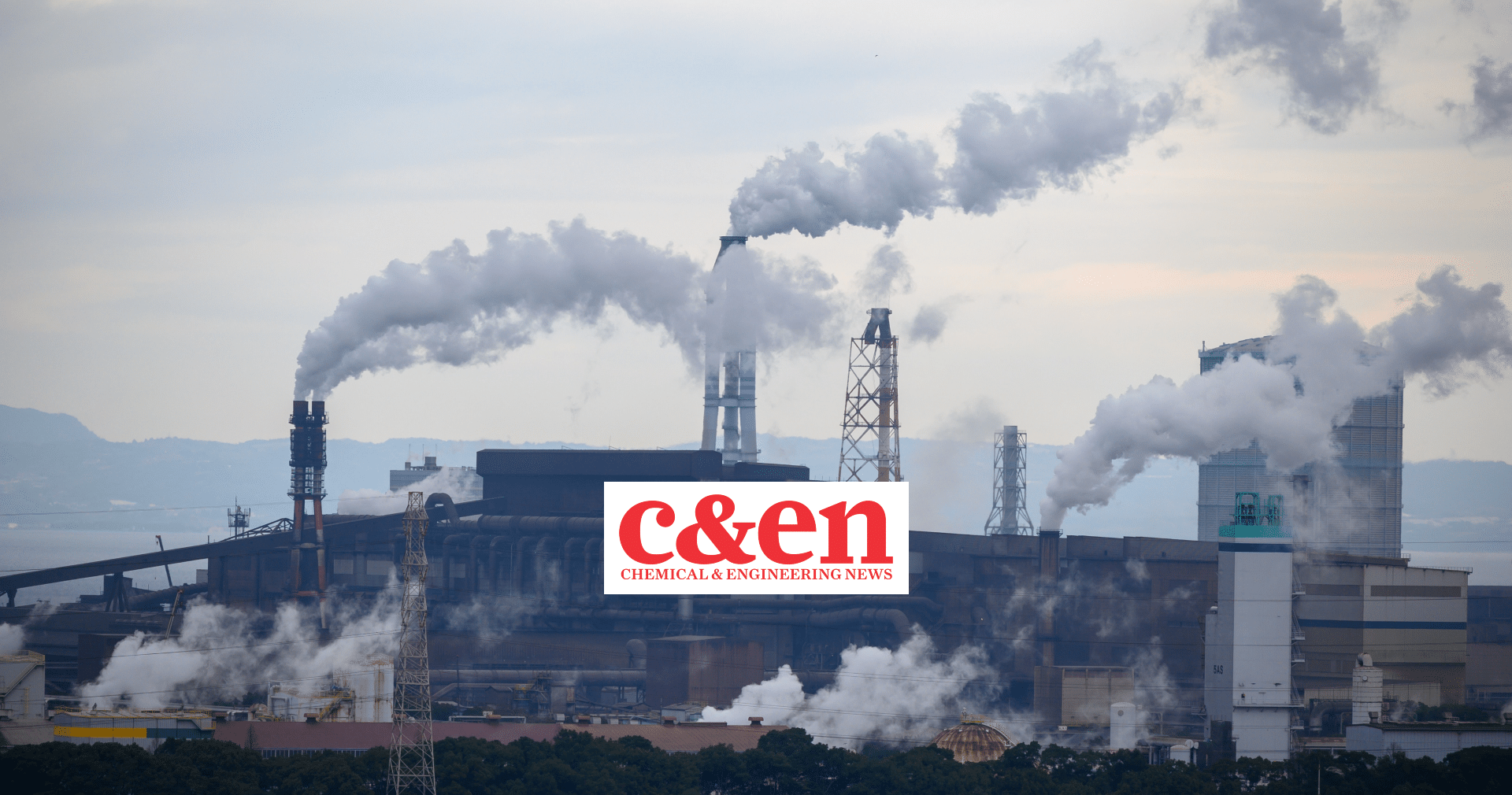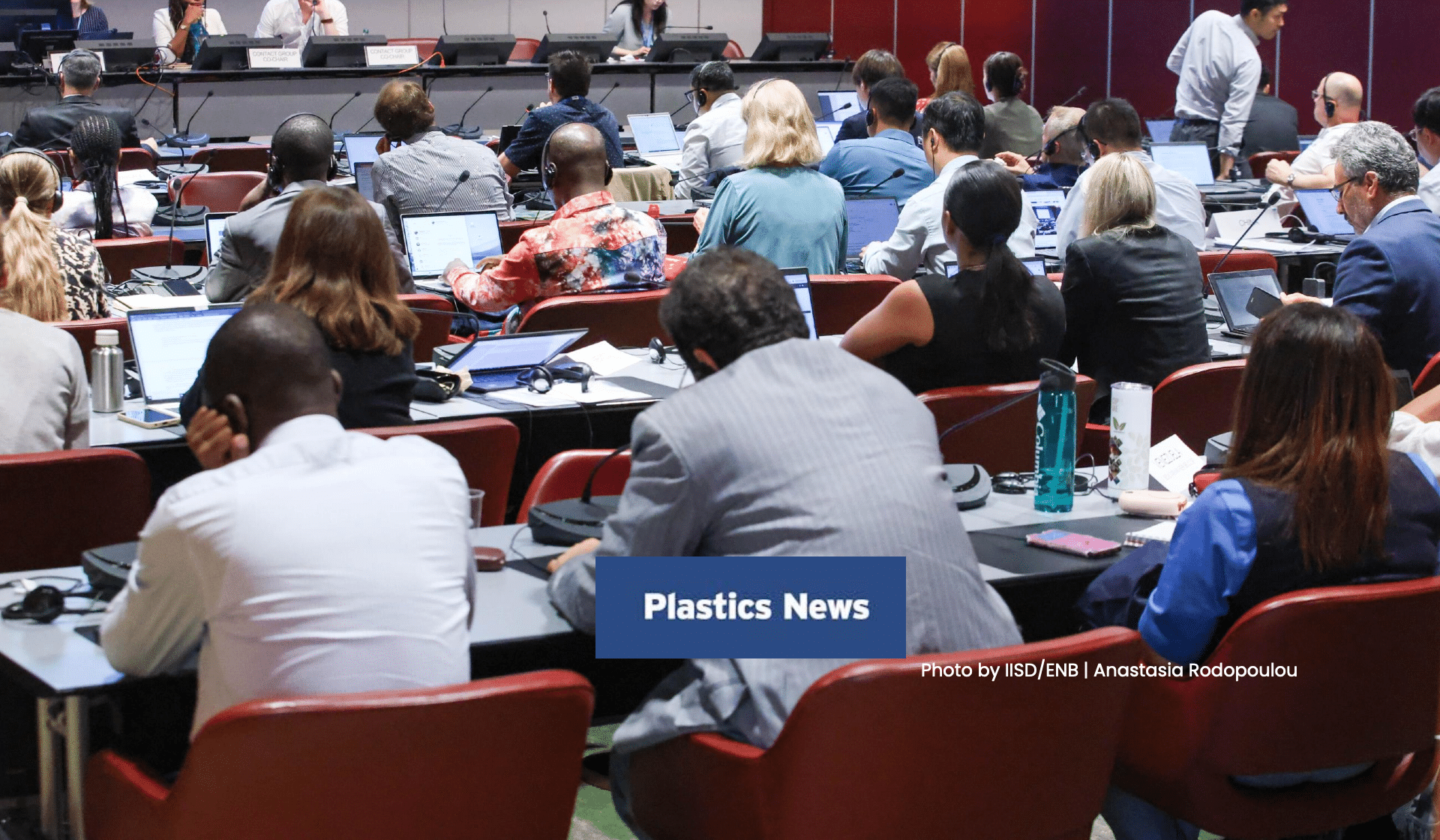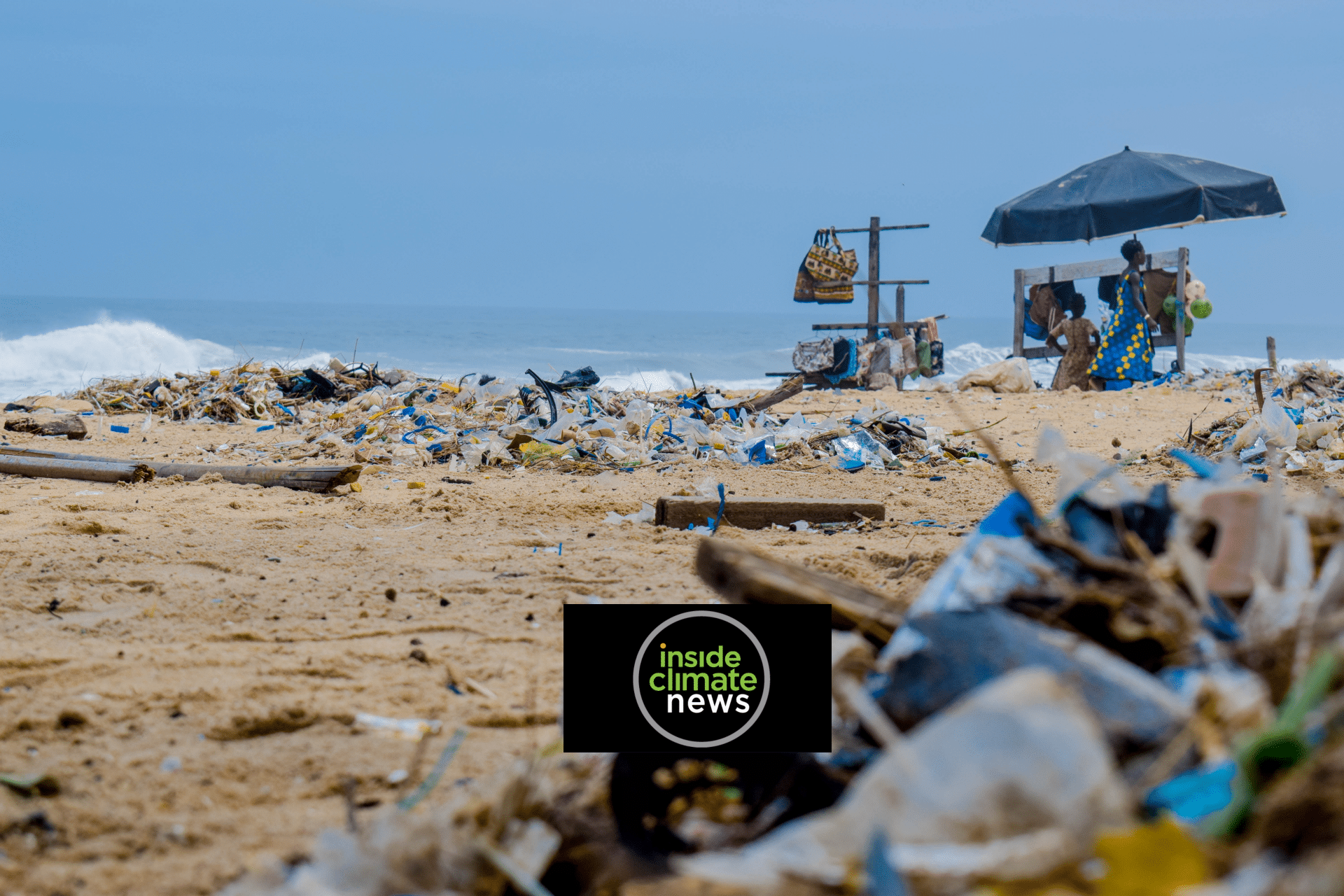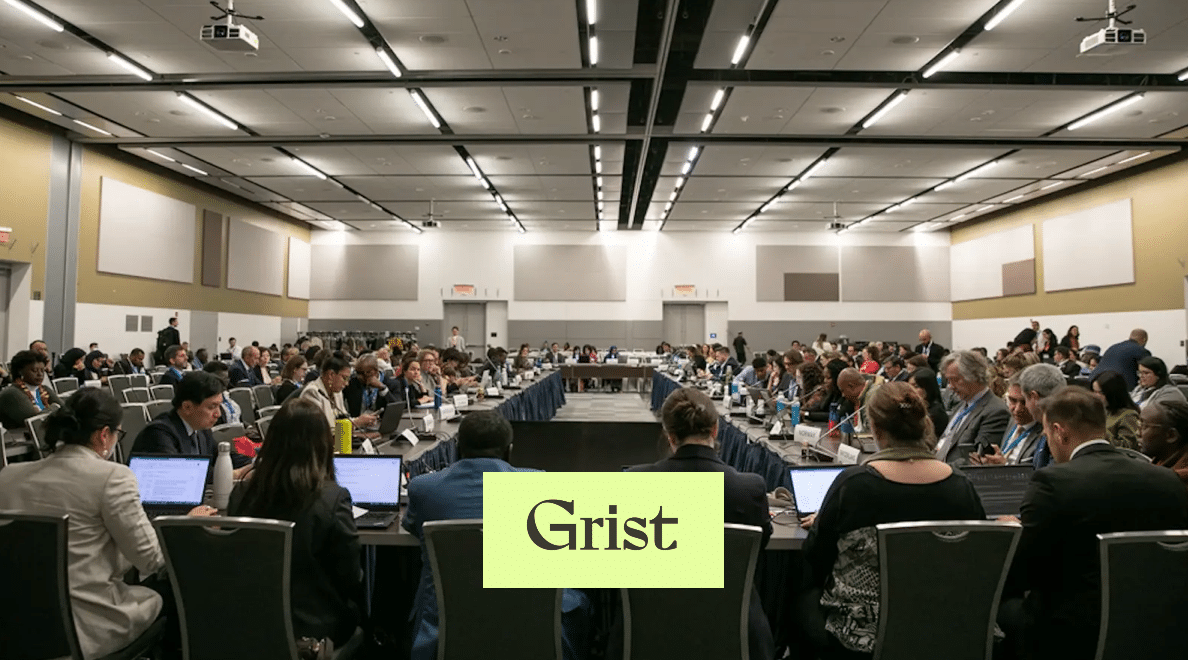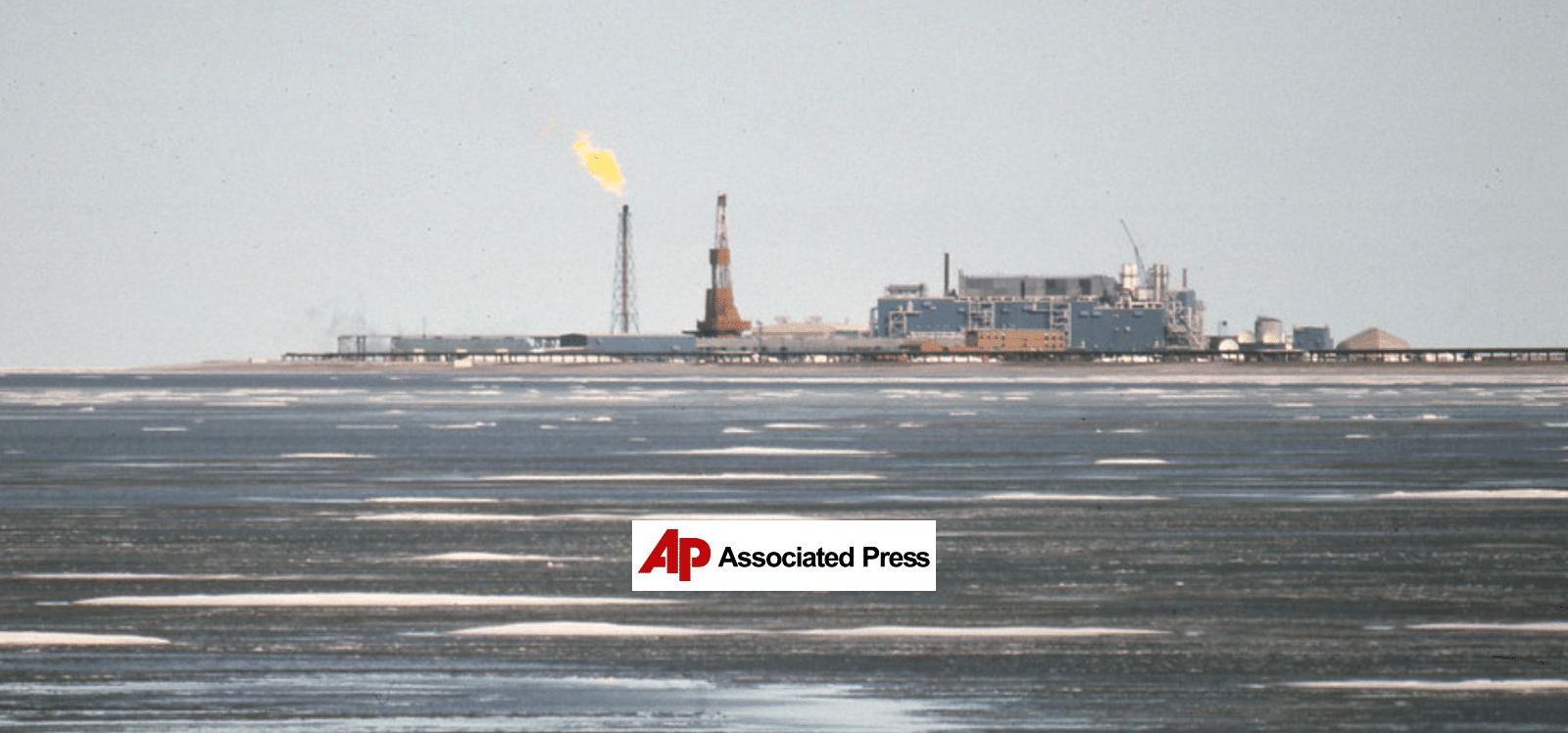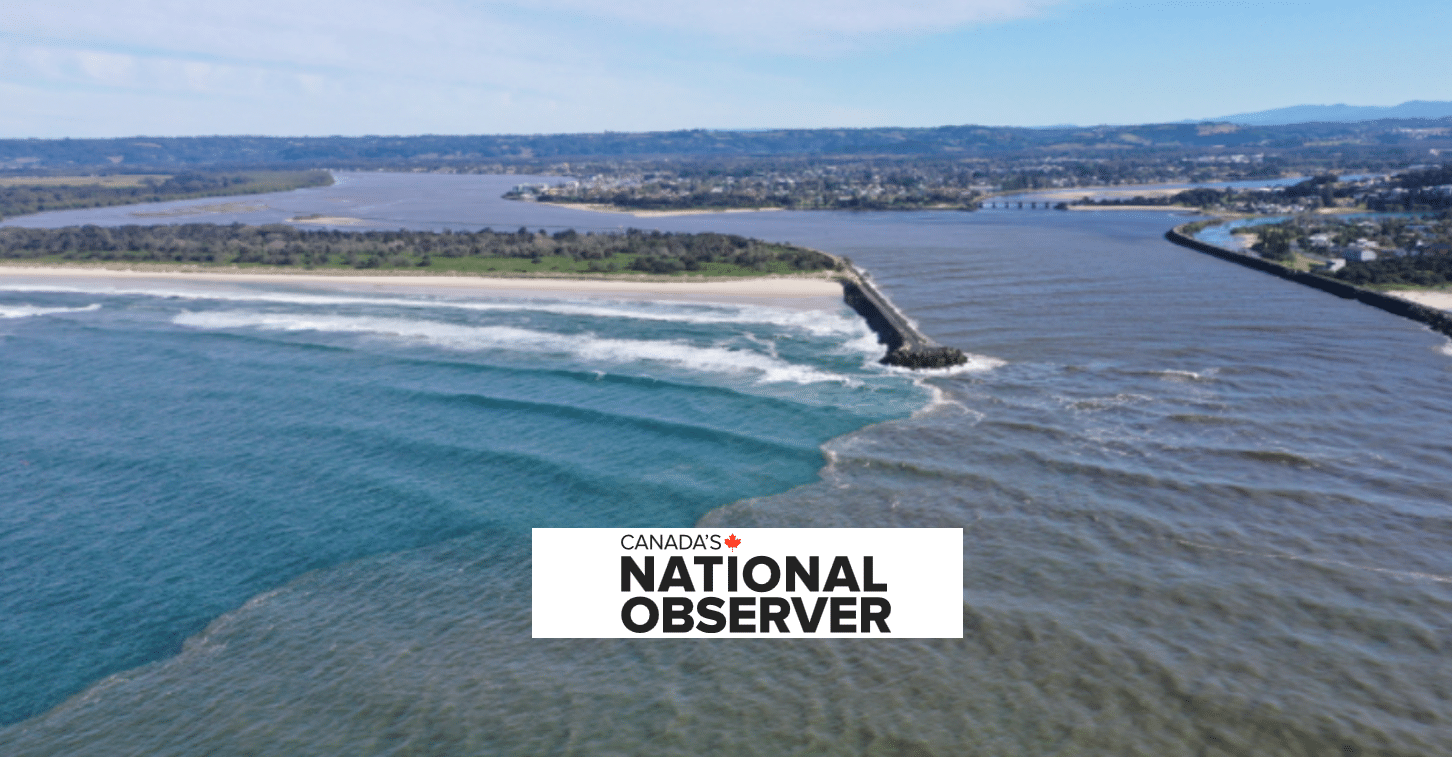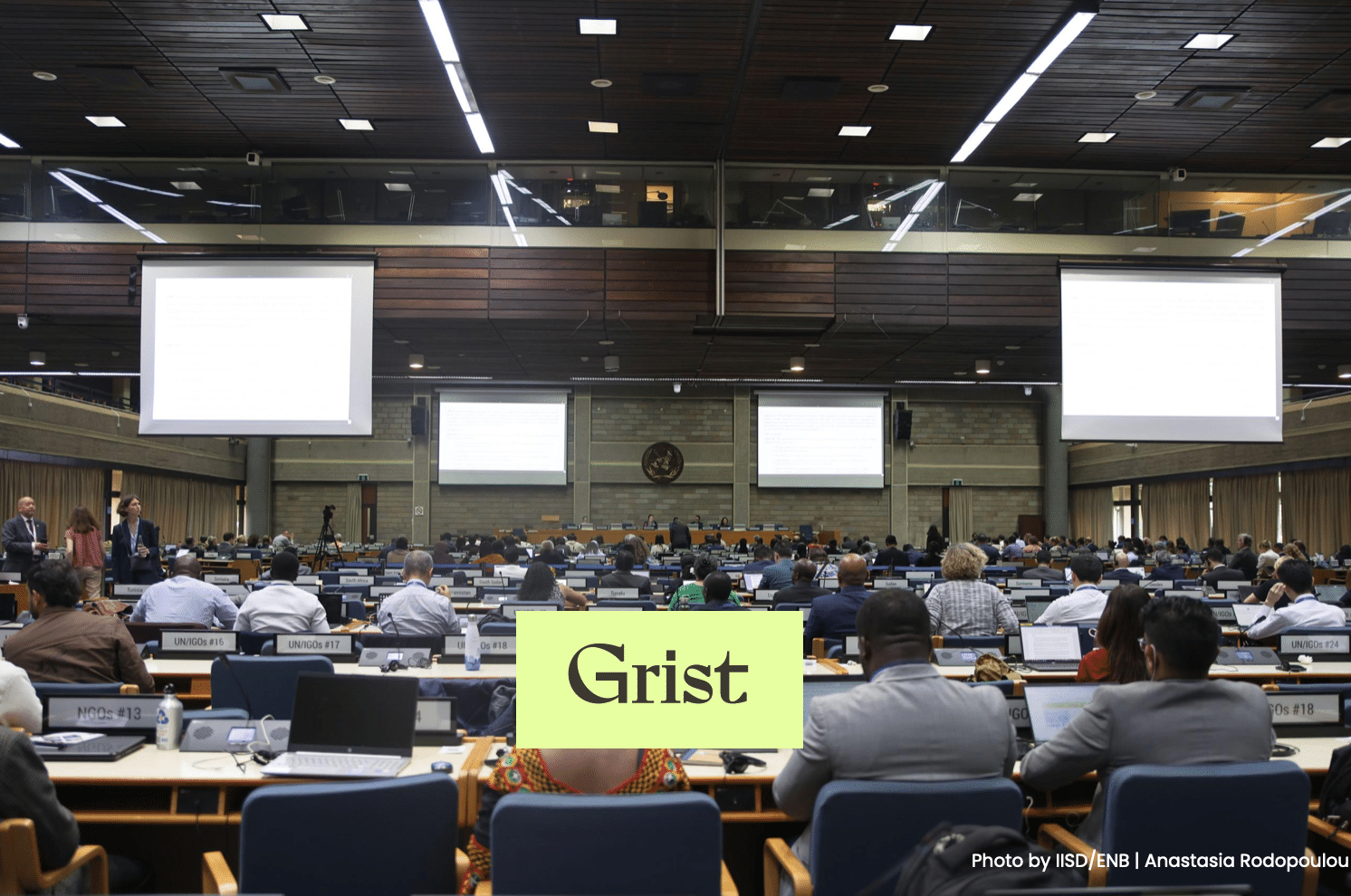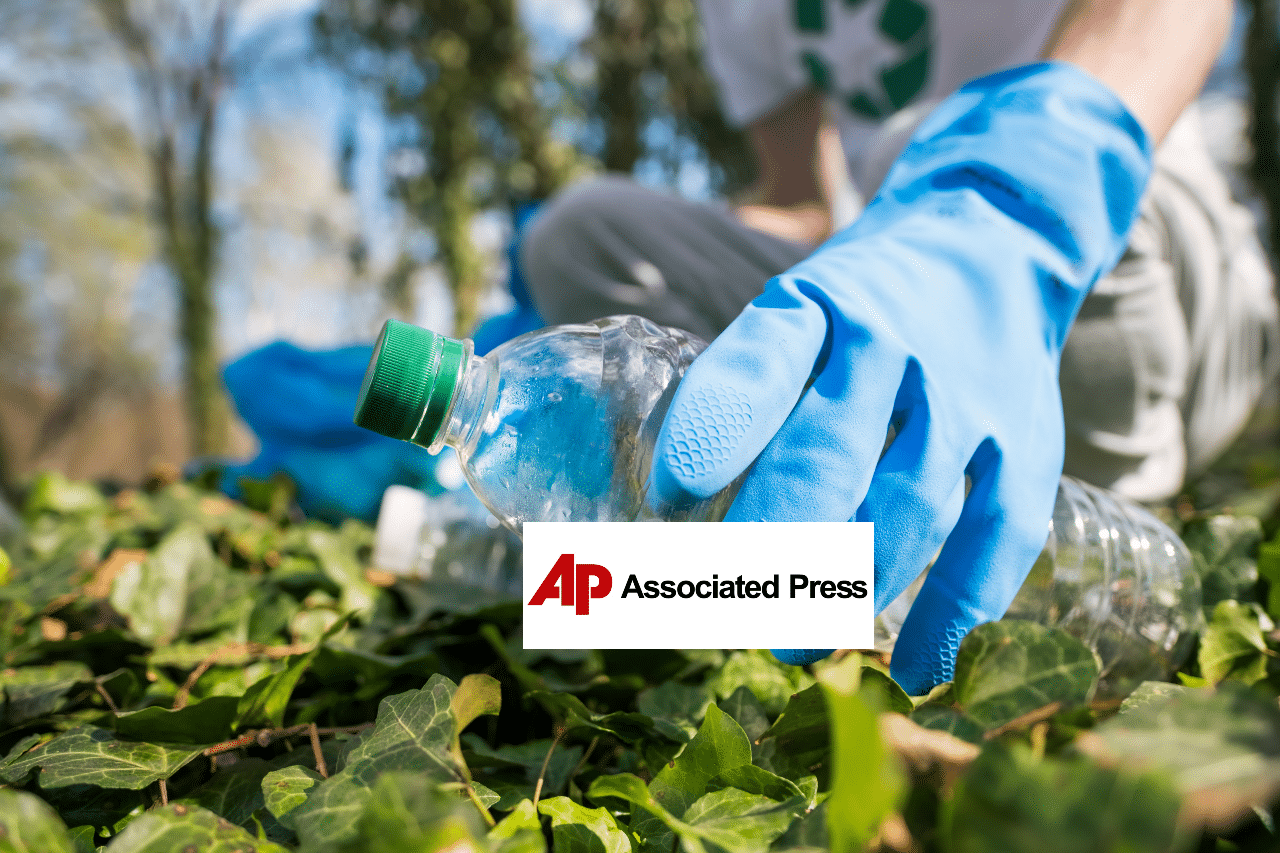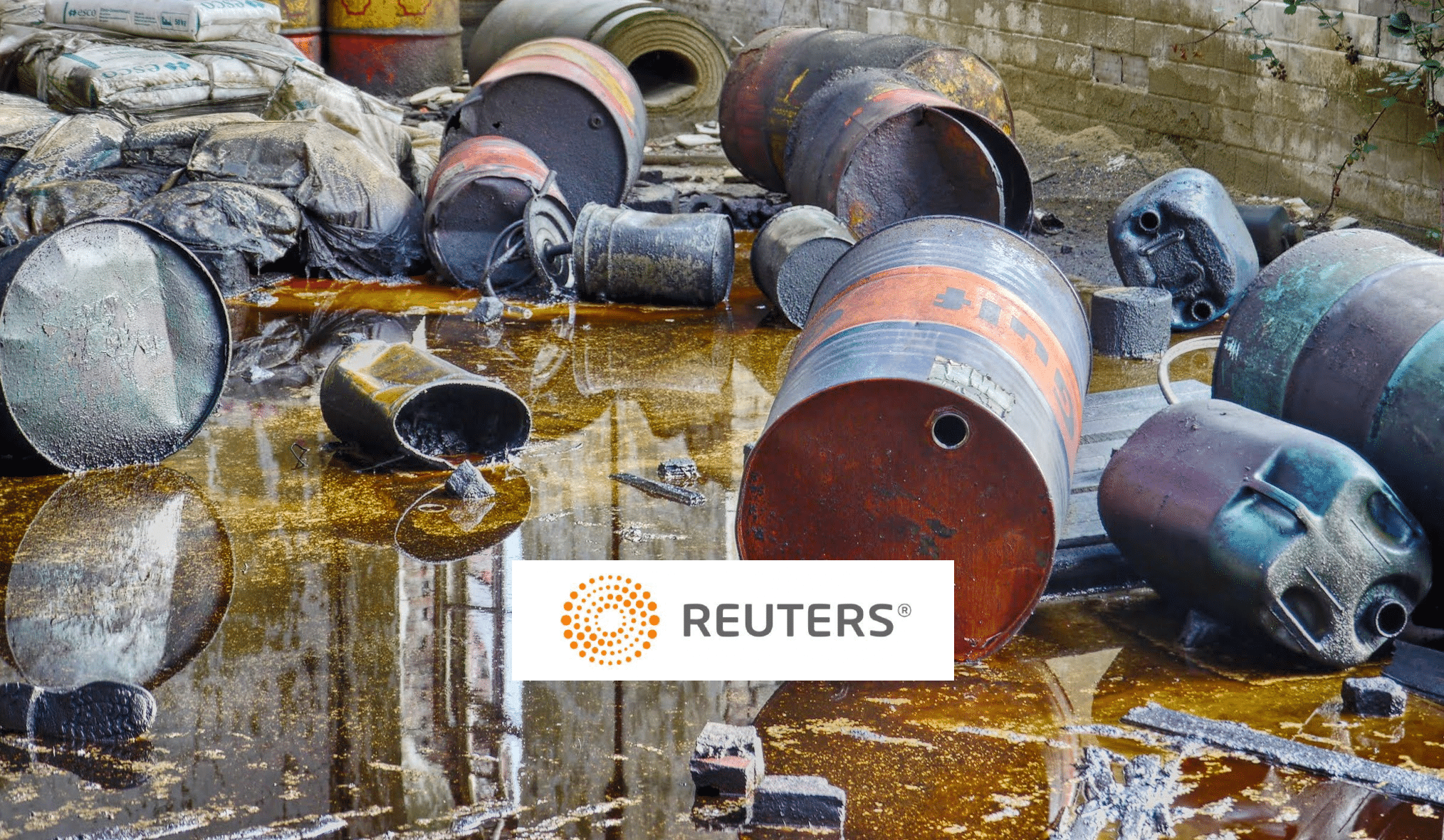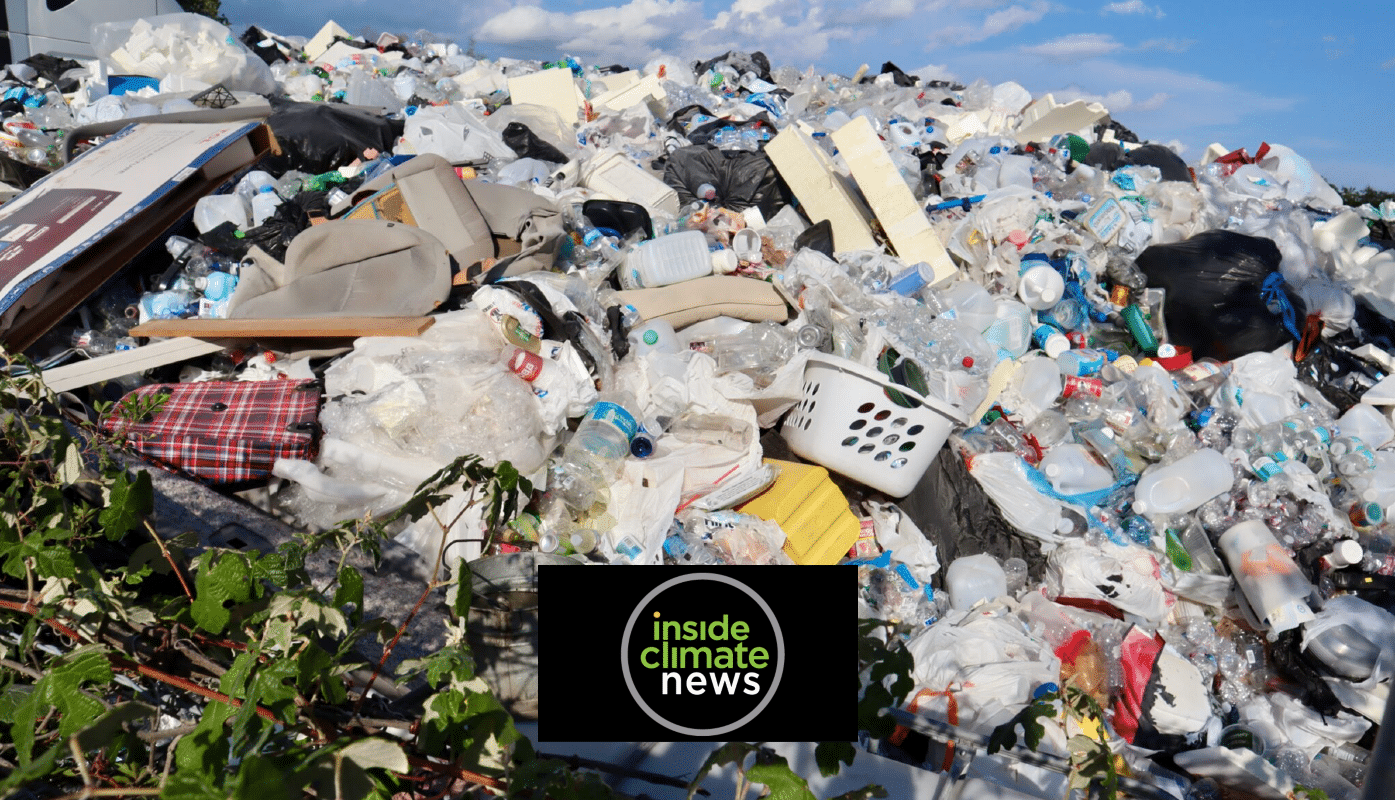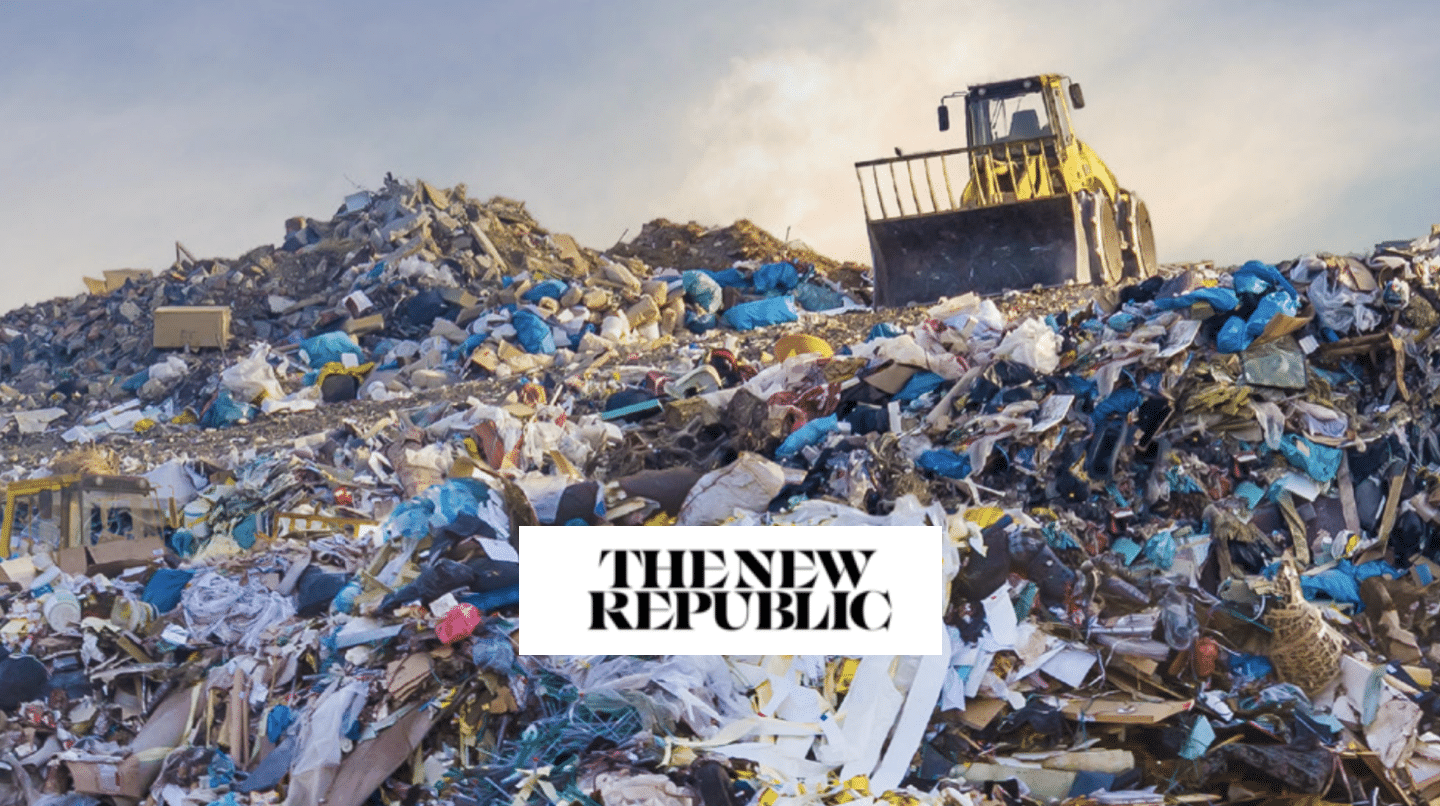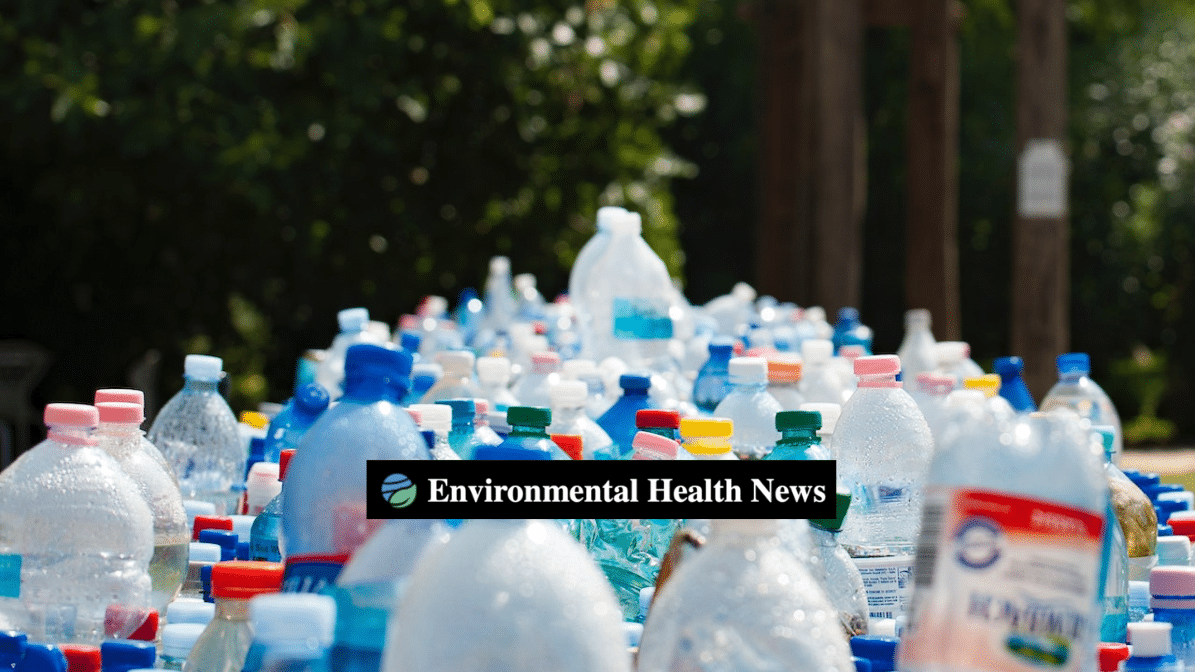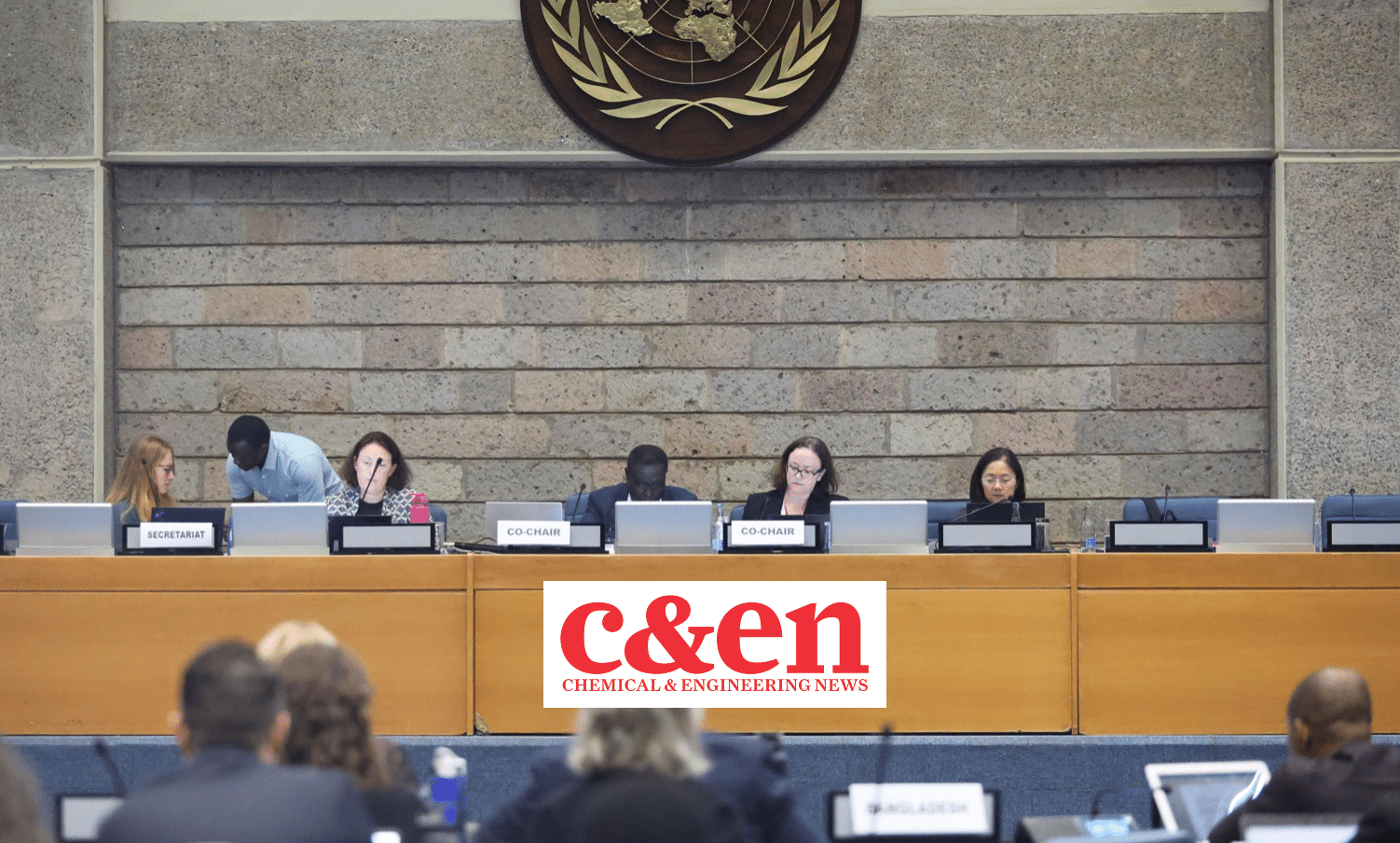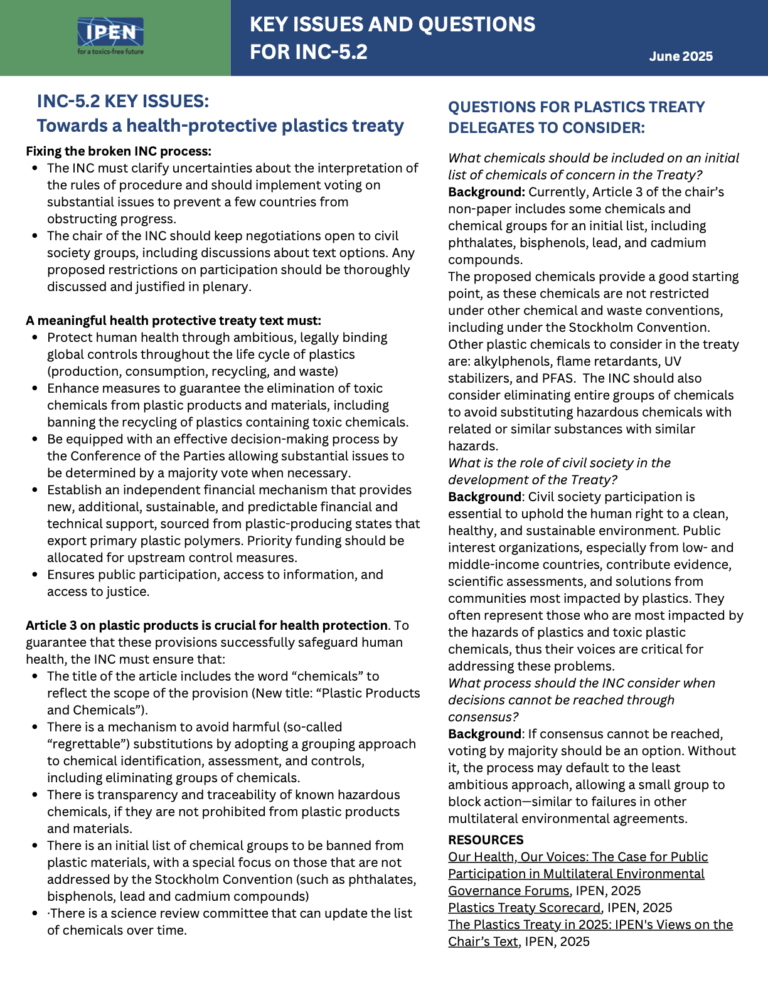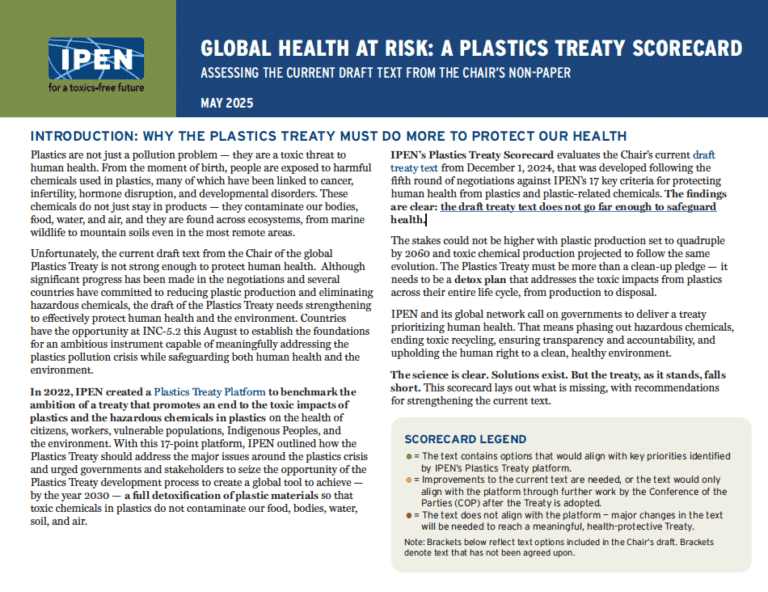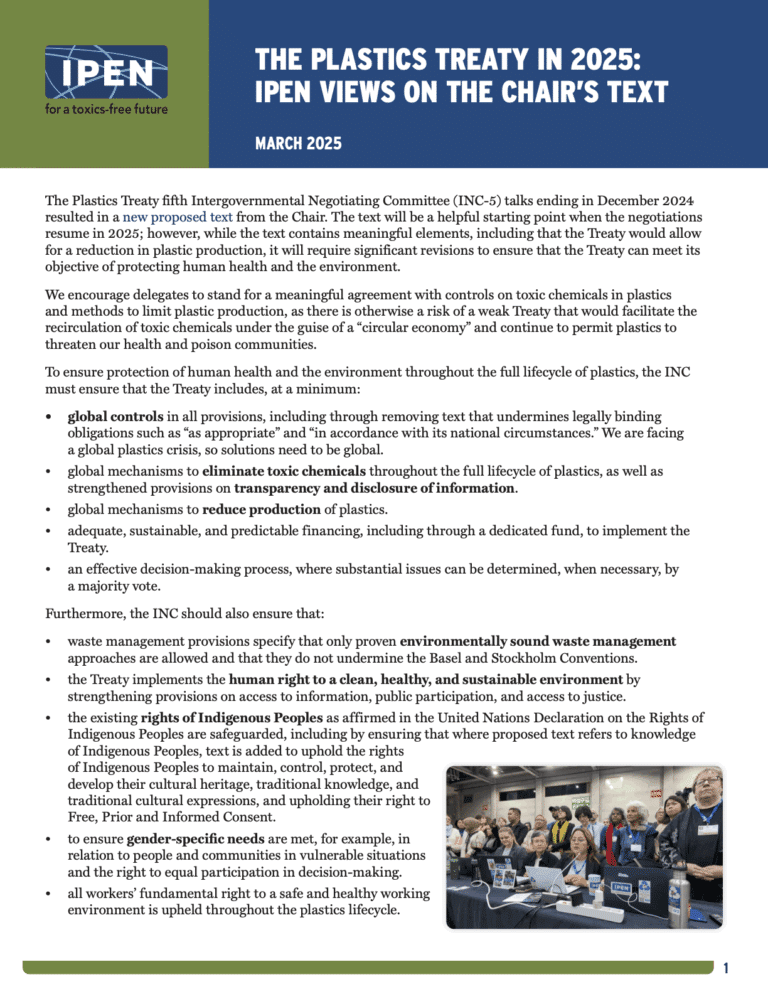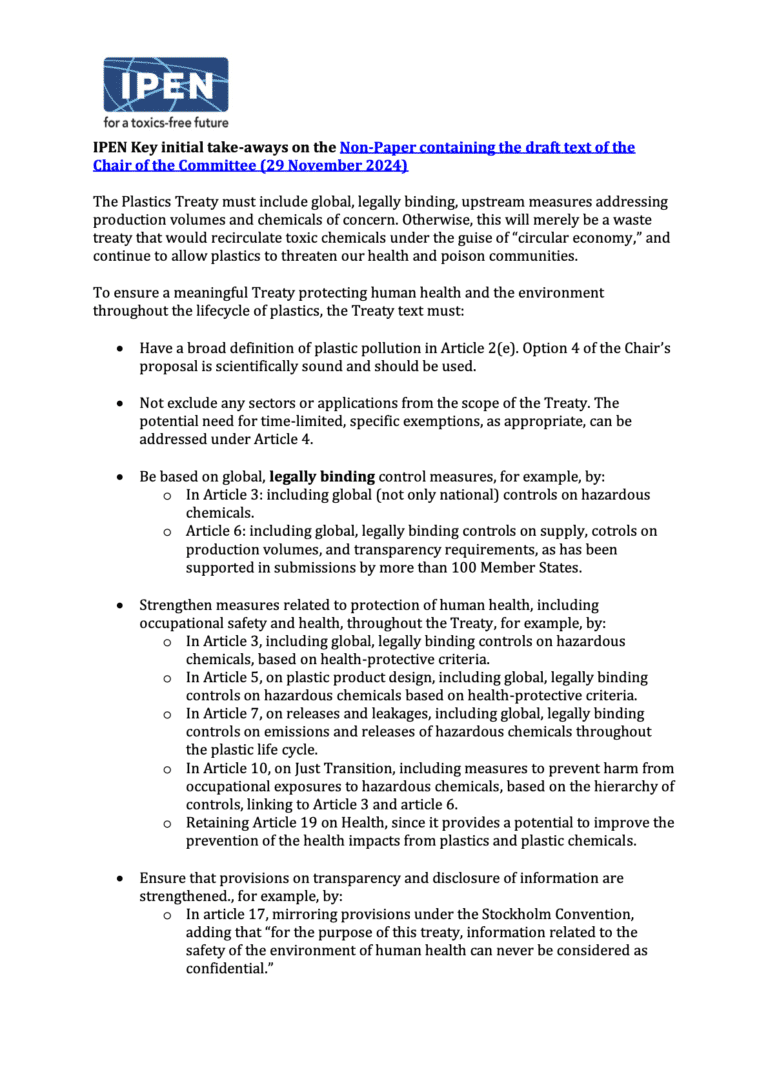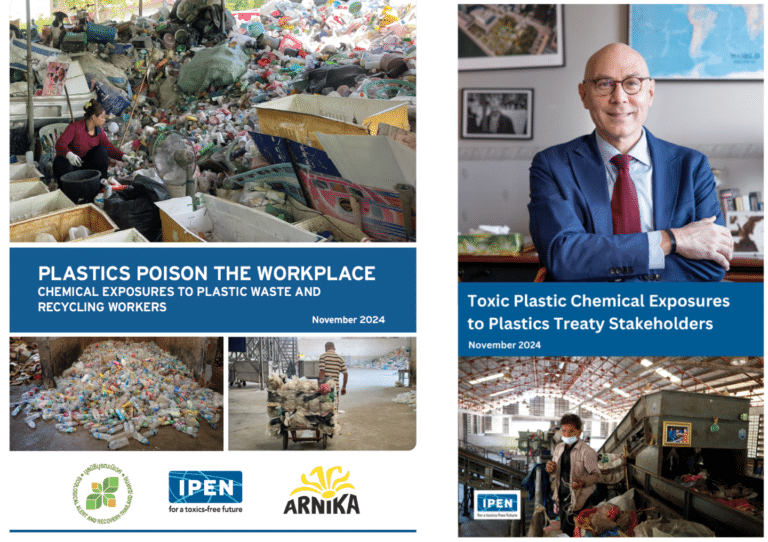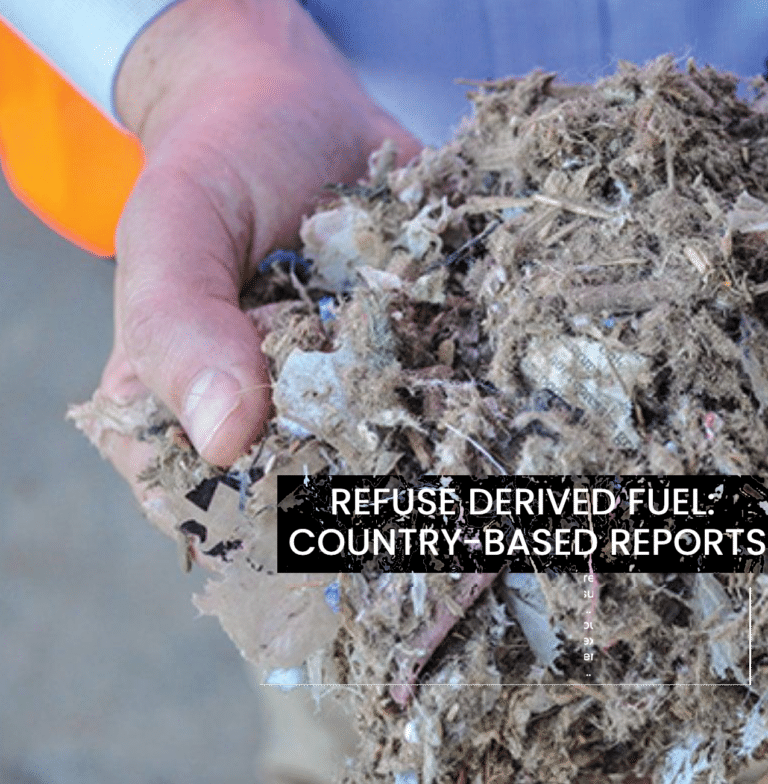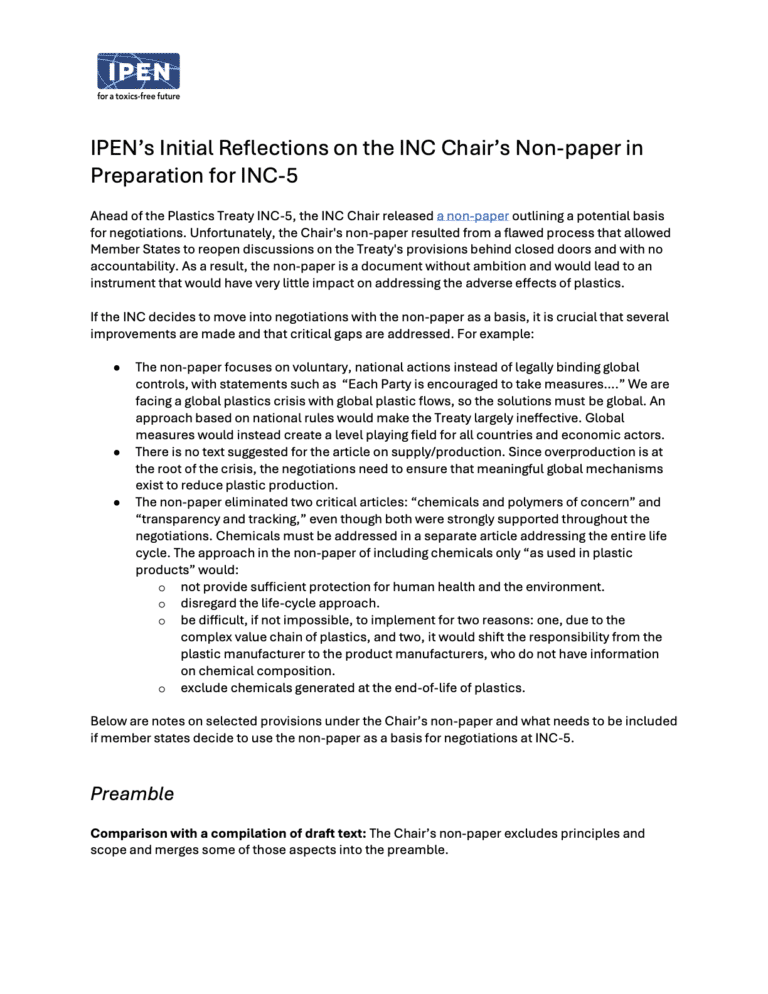In a two-step of ideas and action, the White House...Read More
Ottawa 23-29 April 2024
The fourth meeting of the Intergovernmental Negotiating Committee (INC-4) of the Plastics Treaty was held from 23 – 29 April 2024, in Ottawa, Canada
See IPEN’s summary of what happened at INC-3 and INC-2.
Plastics Treaty Resources
The Plastic Treaty negotiations are scheduled to continue through 2024, with regular sessions of the Intergovernmental Negotiating Committee (INC).
For each negotiating session, IPEN develops policy documents on the meeting agenda and emerging issues, as well as briefing papers, reports, and other materials.
Our Quick Views are available in several languages.
INC-4 Press Statement, April 30: After a Slow Start, Plastics Treaty Talks Gain New Momentum at INC-4
The Plastics Treaty fourth Intergovernmental Negotiating Committee (INC-4) closed early this morning, for the first time with draft text outlining pathways toward a global agreement. In a positive development, the draft text includes options for addressing the overproduction of plastic and eliminating toxic chemicals throughout the plastics life cycle. While these and other key issues remain contentious (with bracketed text, signaling ongoing discussions toward a final agreement), leadership from the Chair helped move the overall talks forward and create a plan for technical work groups before INC-5 in November in the Republic of Korea.
The Arctic's Plastic Crisis
A timely report from Alaska Community Action on Toxics and IPEN highlights perspectives from Arctic Indigenous leaders and explains how plastics, chemicals, and climate change are interconnected crises that are particularly harmful to the Arctic and threaten Indigenous rights.
Read the report and explore audio and video excerpts from Native Alaskan leaders.
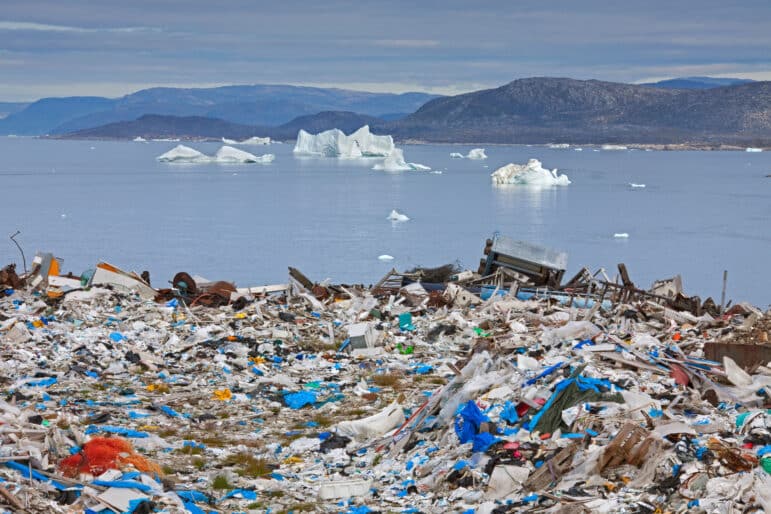
We’ve already seen over a thousand wells drilled near our community associated with oil and gas development. It is very concerning to us because we see the changes to our lands and waters and these changes affect our daily lives.
Rosemary Ahtuangaruak
Iñupiaq scholar, activist, leader, former health aide, and founder of Grandmothers Growing Goodness from the Native Village of Nuiqsut
My role has been to be an advocate, to inform people about the routes of contamination…. (it’s important) to be open to learning and be open to finding opportunities for the community, because it only takes one person to see an opportunity and bring it to the table for everybody.
Jasmine Jemewouk
Indigenous leader, Iñupiaq and Cherokee Native from Elim, Alaska
Worldwide we are not prepared for catastrophic disasters. Rural Alaska, rural communities, Indigenous tribes all over the world are under assault... We are overwhelmed with concern about the health harms associated with climate change, the loss of sea ice and melting permafrost, and the mobilization of chemicals and plastics — these are all interconnected. We are running out of time!
Delbert Pungowiyi
Yupik Elder, Arctic Indigenous leader, and human rights advocate from Sivuqaq, Alaska
The chemicals present in our bodies are passed on to our Indigenous children and harm their ability to learn our languages, songs, stories, and knowledge.
Vi Pangunnaaq Waghiyi
Yupik Mother and Grandmother, member of the White House Environmental Justice Advisory Council from Sivuqaq, Alaska
We don't just eat one chemical. We eat the whole fish.
Violet Yeaton
Sugpiat and a Long-time Community Advocate from the Native Village of Port Graham
The Endocrine Society and IPEN provide a comprehensive update on the science of endocrine disrupting chemicals (EDCs), which may be particularly harmful during the fetal and infant stages. The report examines bisphenols and phthalates, two toxic chemical groups found in many plastics, and includes a special feature highlighting EDC exposures throughout the plastic life cycle.
Children's Health Threats from Plastic Chemicals
Project TENDR, an alliance of 50+ leading scientists, health professionals, and advocates, share a briefing for delegates outlining how common exposures to plastic and its toxic chemicals are harming children’s brain development. They summarize the scientific evidence and offer policy recommendations to strengthen the Plastics Treaty to protect children’s health.
IPEN in INC-4 news
Chemical recycling of plastics could be problematic for developing countries...Read More
The chemical industry says advanced recycling will change the game,...Read More
Global plastic pollution talks in Ottawa came to a close...Read More
As the gavel came down at 3:18 a.m. at the...Read More
The United States and other leading oil and gas producing...Read More
Negotiators wrapped up the fourth round of formal discussions over...Read More
For the first time, negotiators from most of the world’s...Read More
Every year, Delbert Pungowiyi’s community comes together to clean up...Read More
To understand the global plastics treaty, it’s helpful to go...Read More
by Judith Enck and Pamela Miller Judith Enck is a...Read More
Thousands of negotiators and observers representing most of the world’s...Read More
Countries are under pressure to make progress on a first-ever...Read More
Indigenous people from Arctic communities are calling for environmental protection...Read More
In March 2022, U.N. delegates met in Ottawa and struck...Read More
Within a single lifetime, Indigenous communities in the Arctic have...Read More
The world is trying to figure out how to deal...Read More
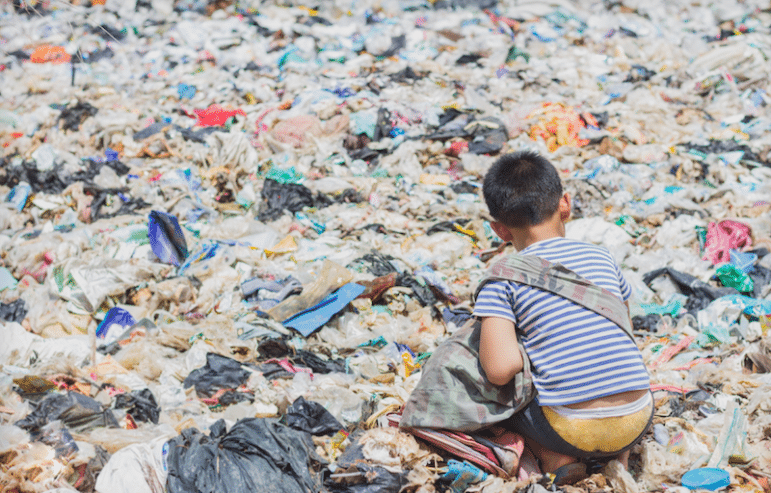
Troubling Toxics: Eliminating Harmful Plastic Chemicals Through the Plastics Treaty
The IPEN briefing Troubling Toxics discusses approaches in the Plastics Treaty to establish criteria for a negative list of toxic chemicals associated with the production, use, and disposal of plastics. IPEN calls for a strategy that combines a negative list of toxic chemicals to eliminate from plastics with an approach that prohibits marketing chemicals when there is no available toxicity data.
INC-4 Event: Threats to Indigenous Peoples from Plastics, Chemicals, and Climate Change
On Thursday, April 25, IPEN co-hosted a press briefing on threats to Indigenous Peoples from plastics, chemicals, and climate change.
Click below for more about this event.
Images from INC-4
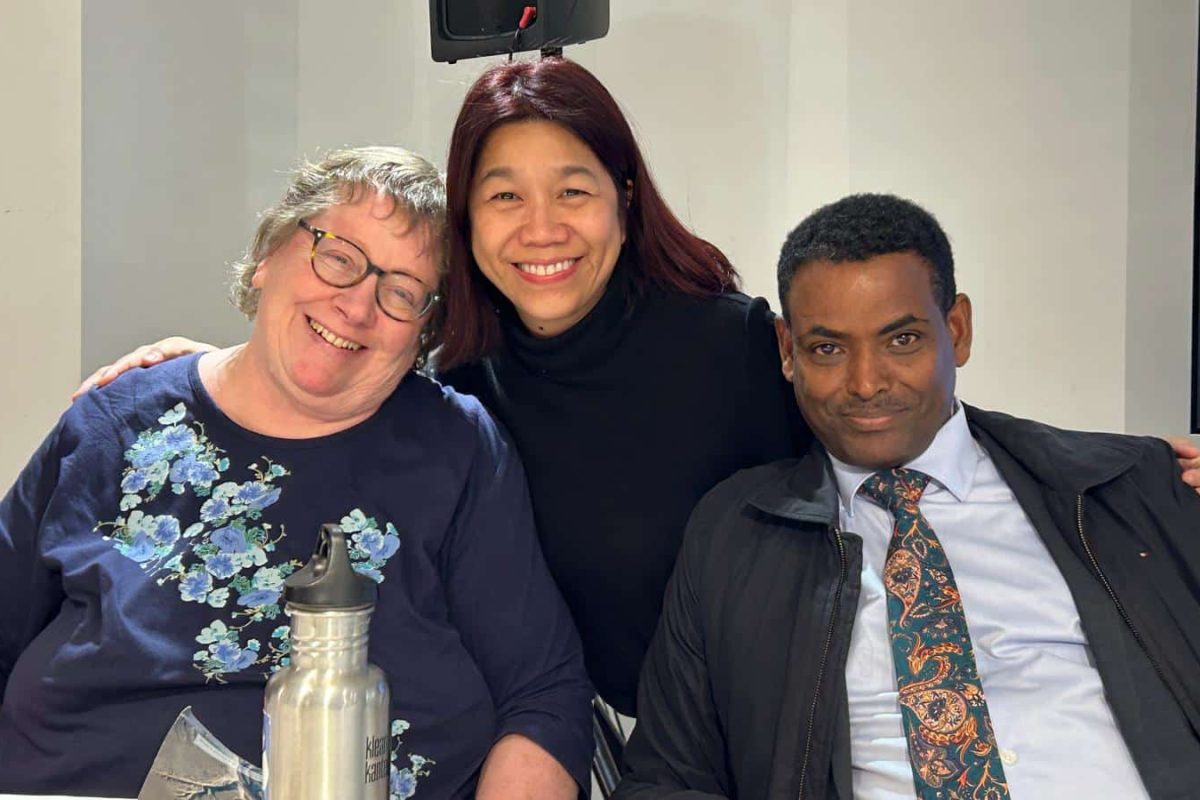
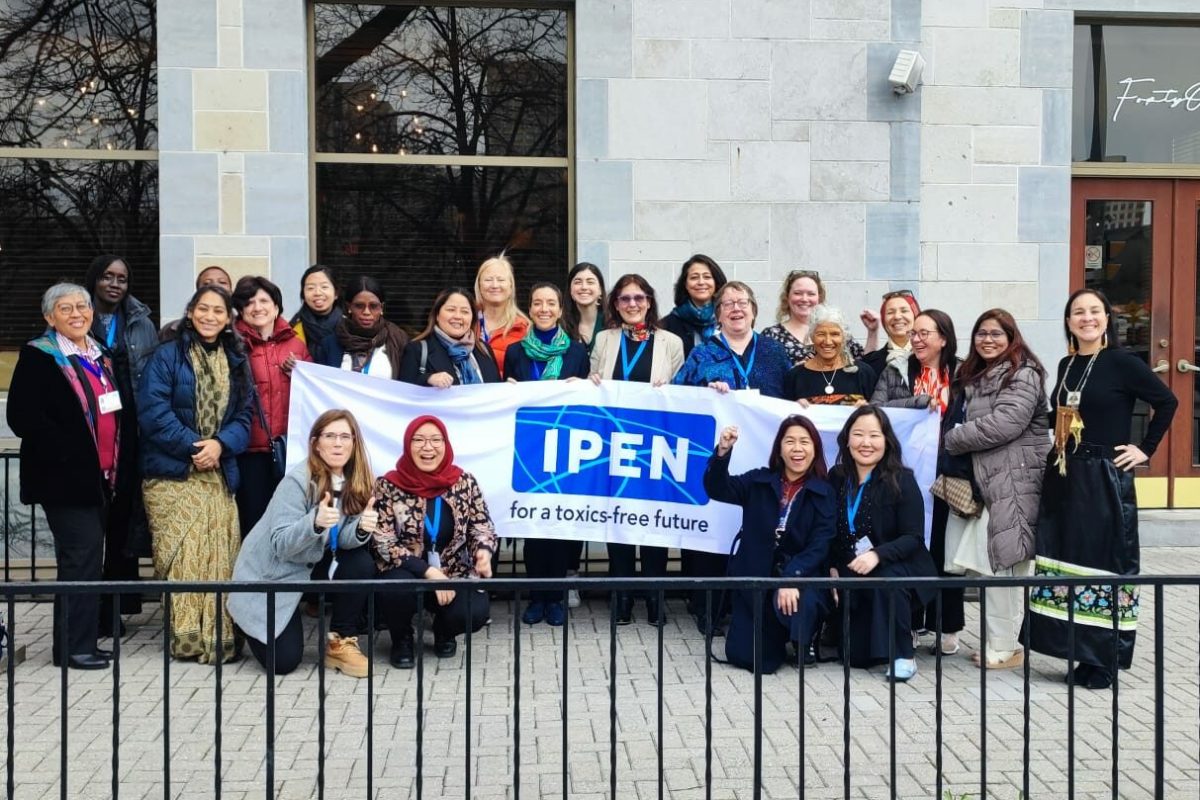
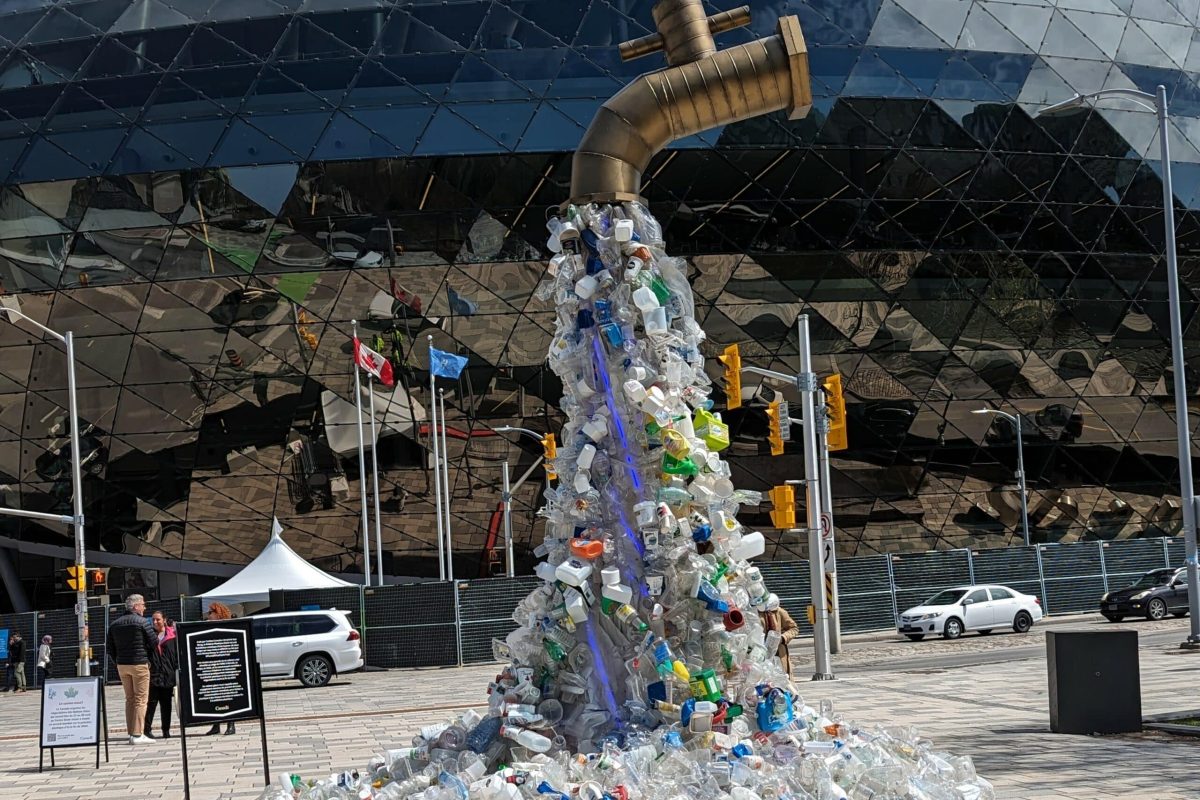
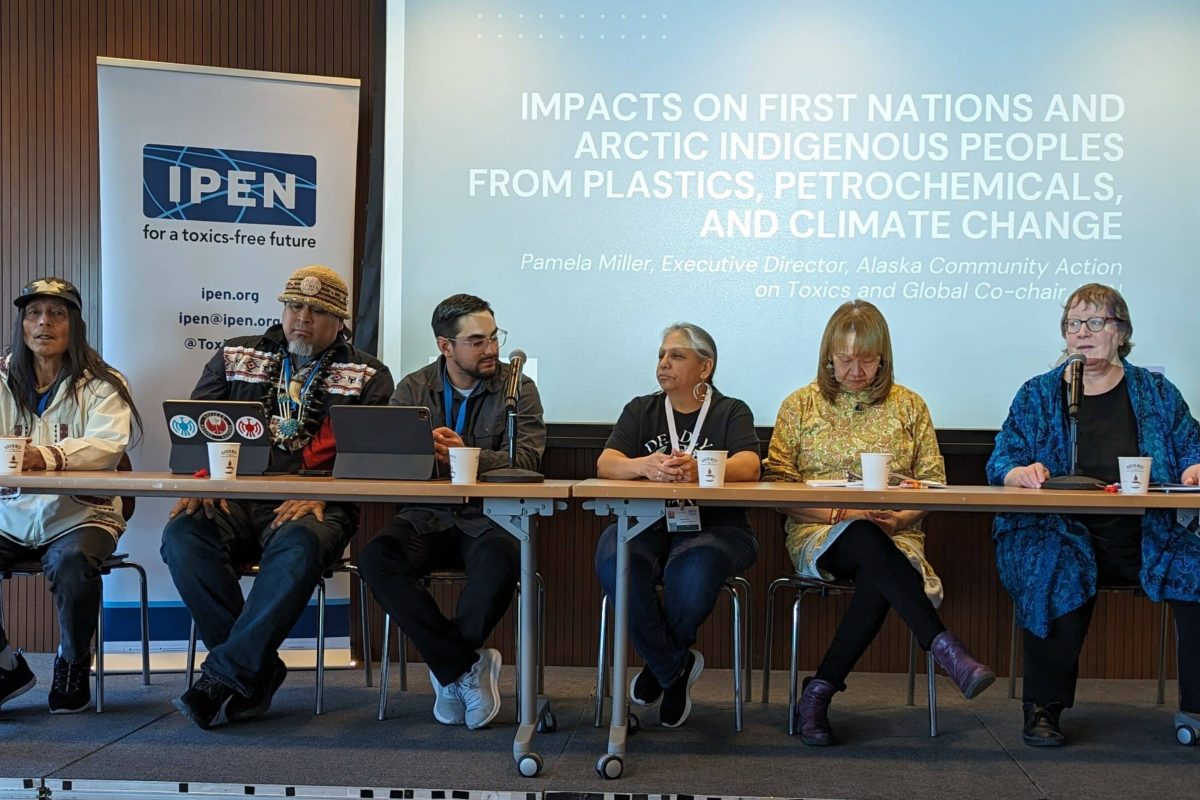

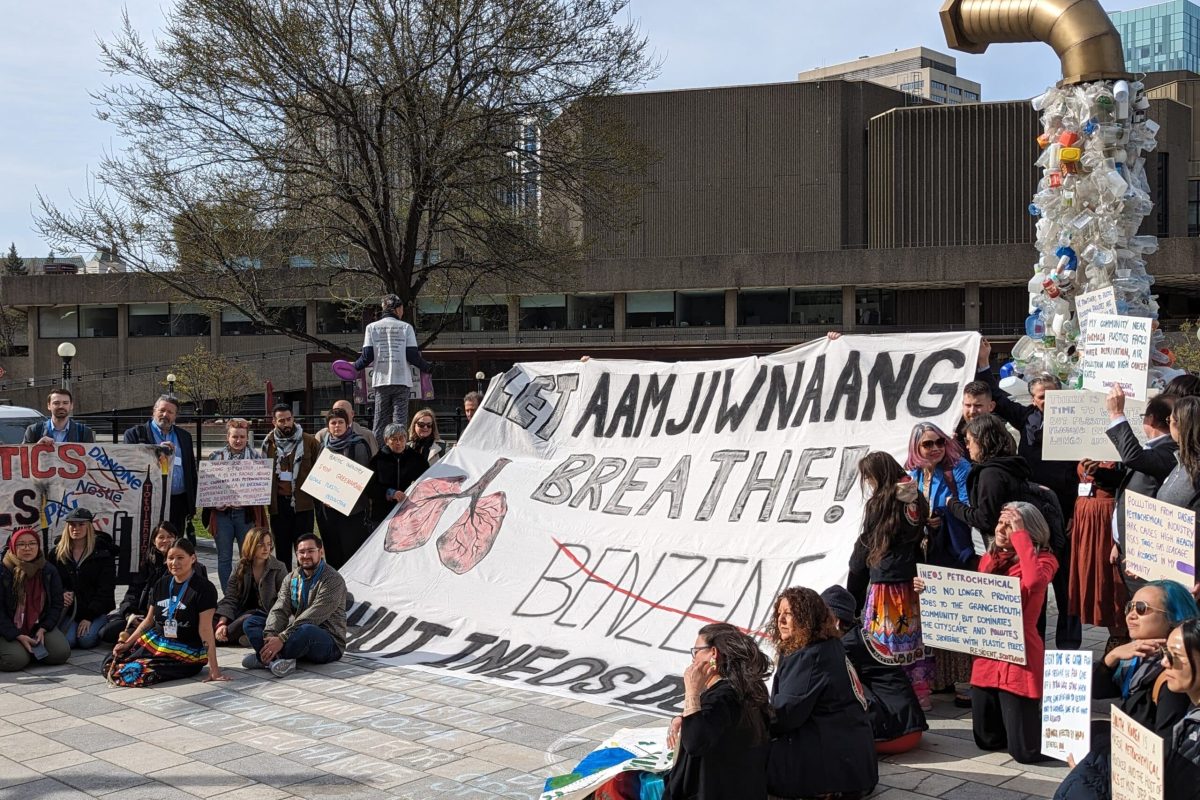
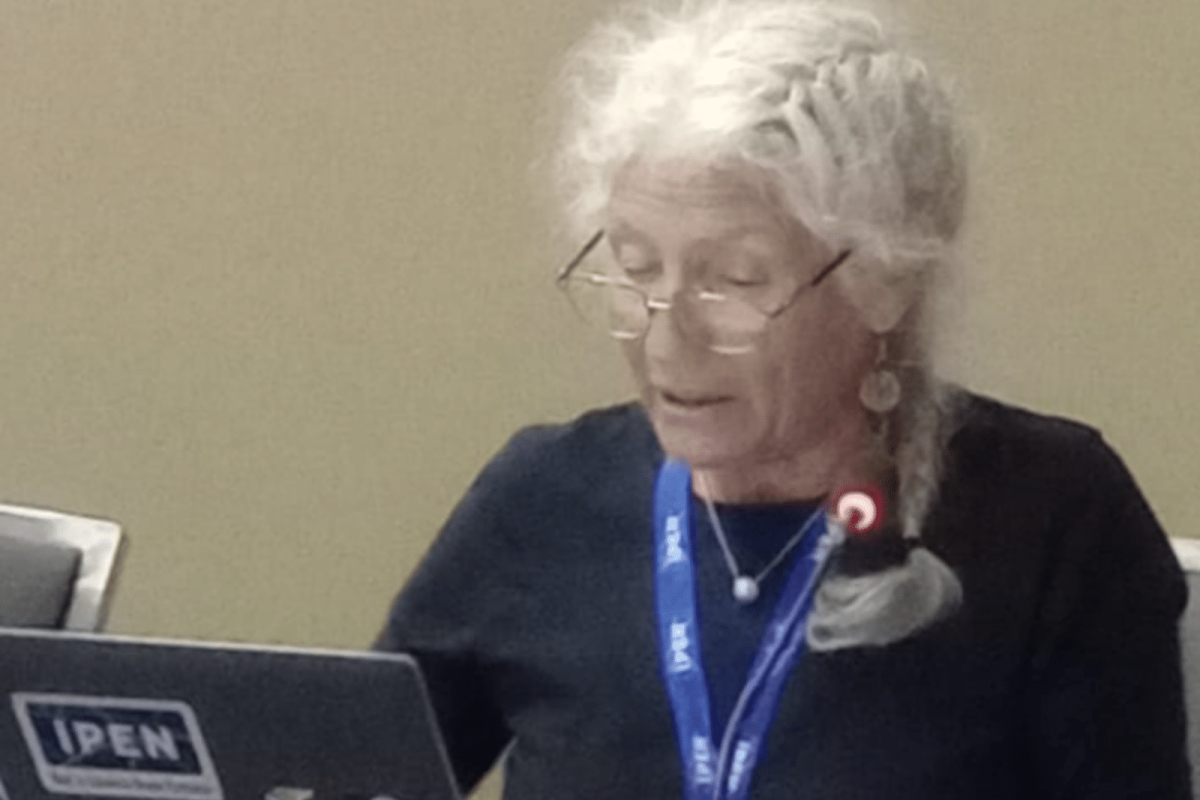

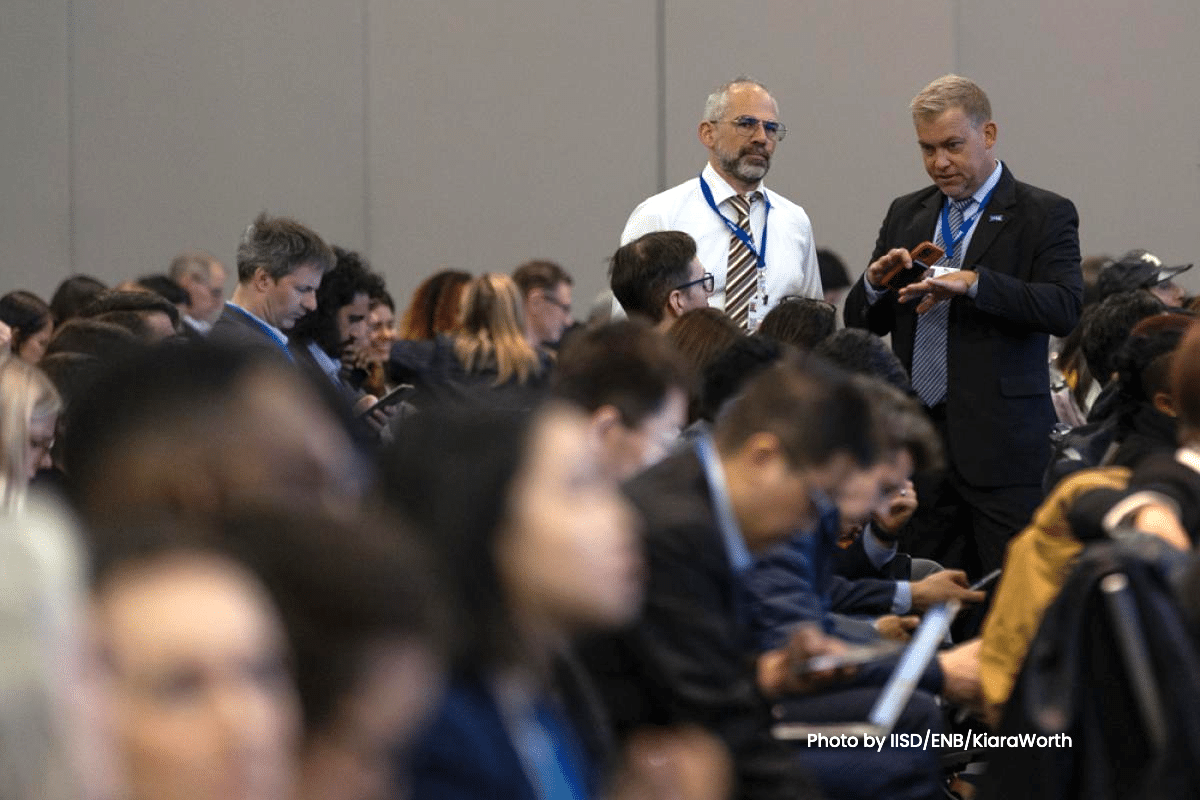
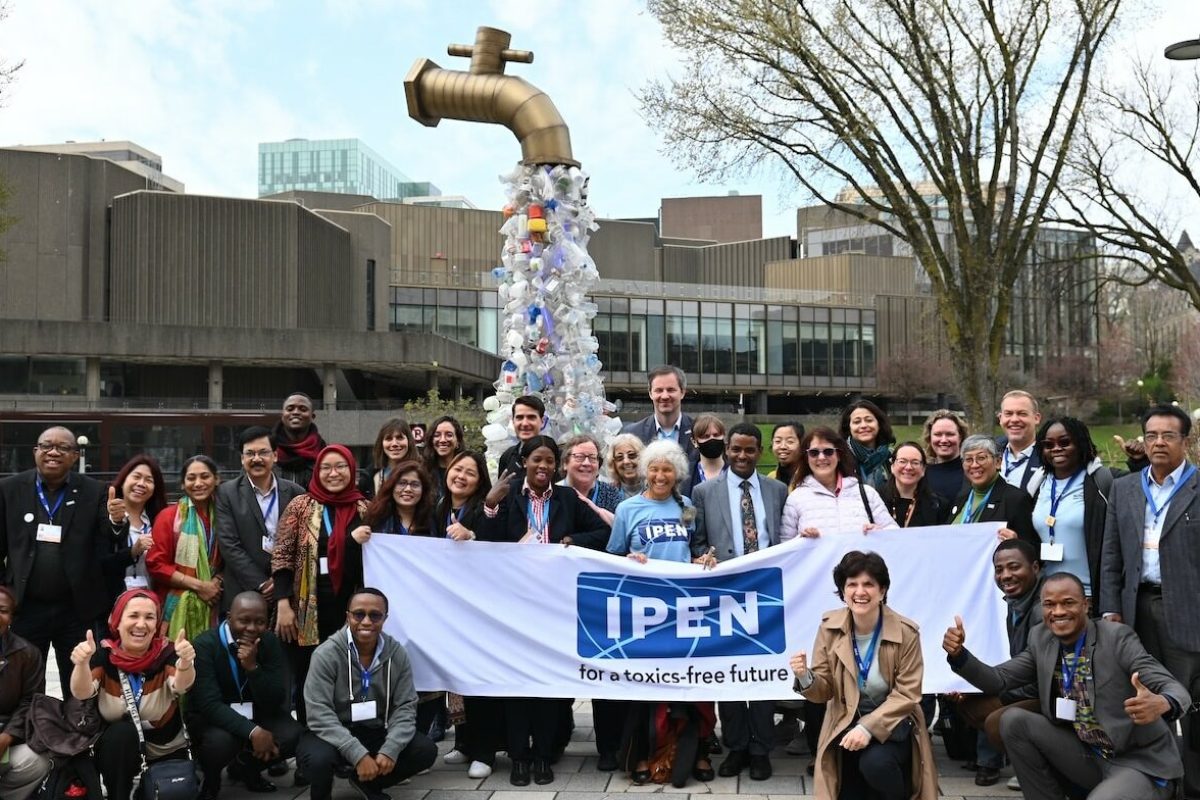
Plastics Treaty INC-4
IPEN Interventions
IPEN participates throughout the Plastics Treaty talks, including by offering our views to delegates.
